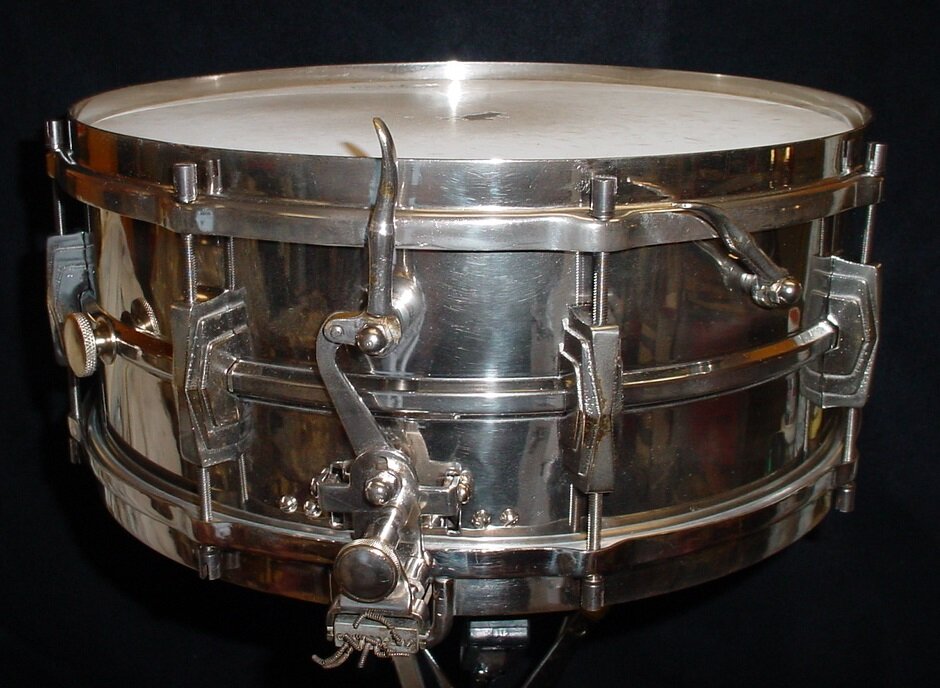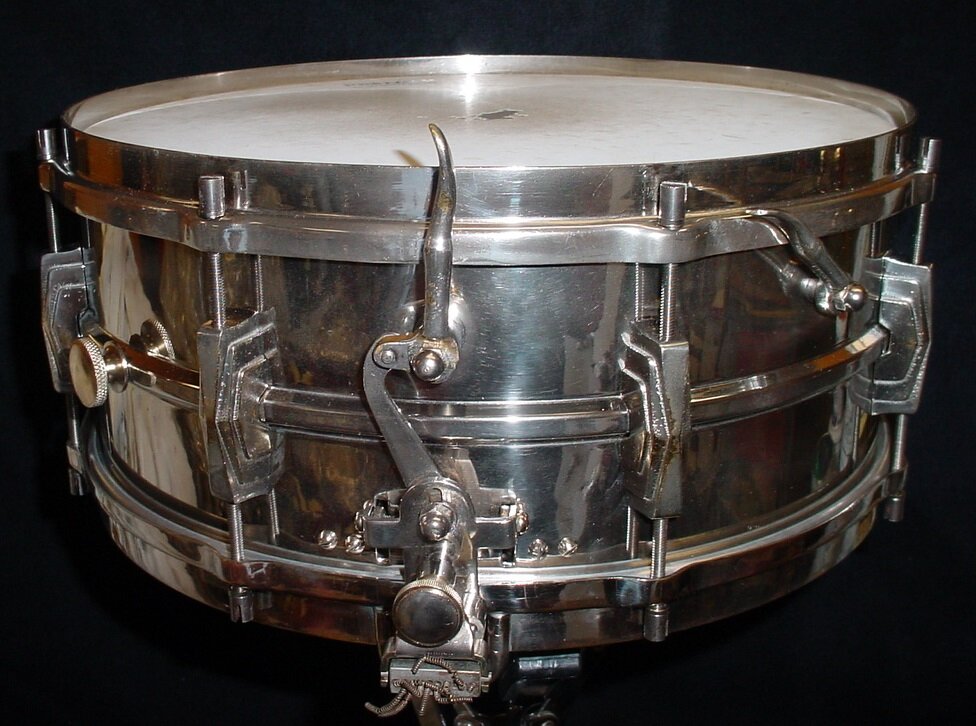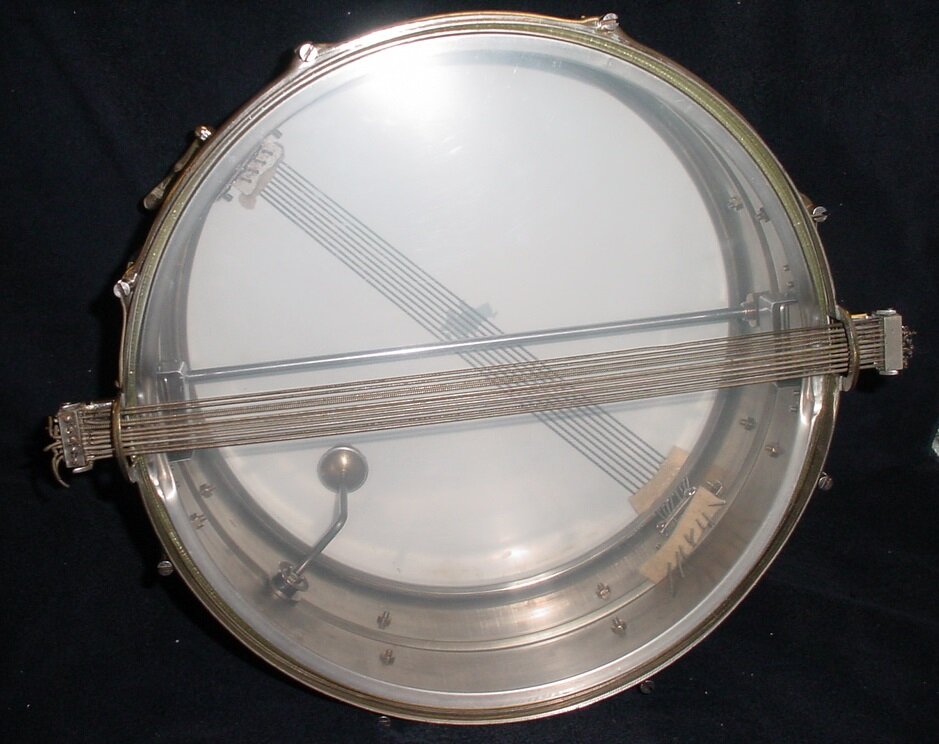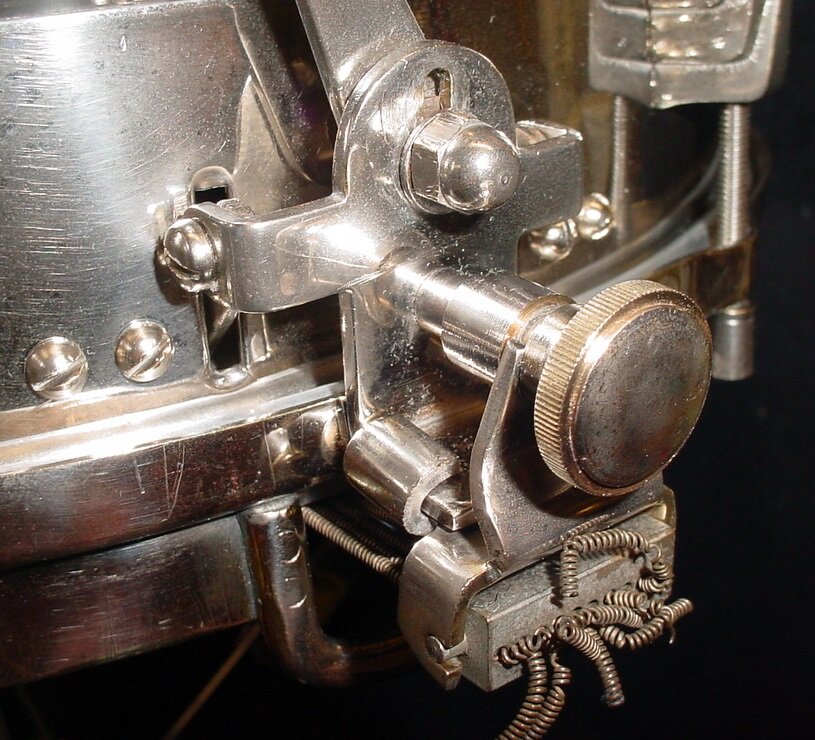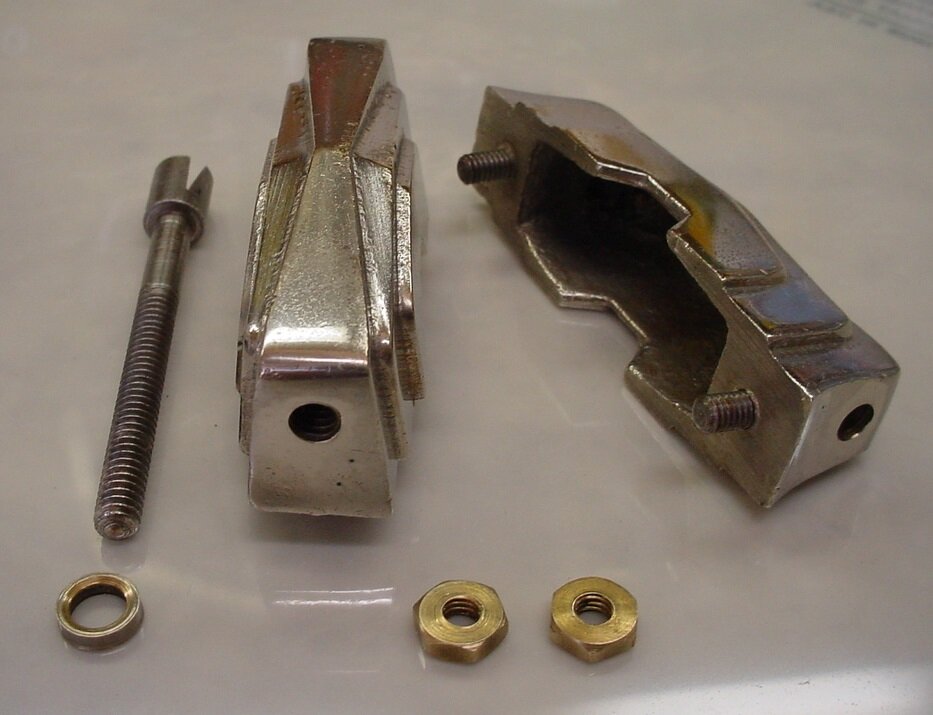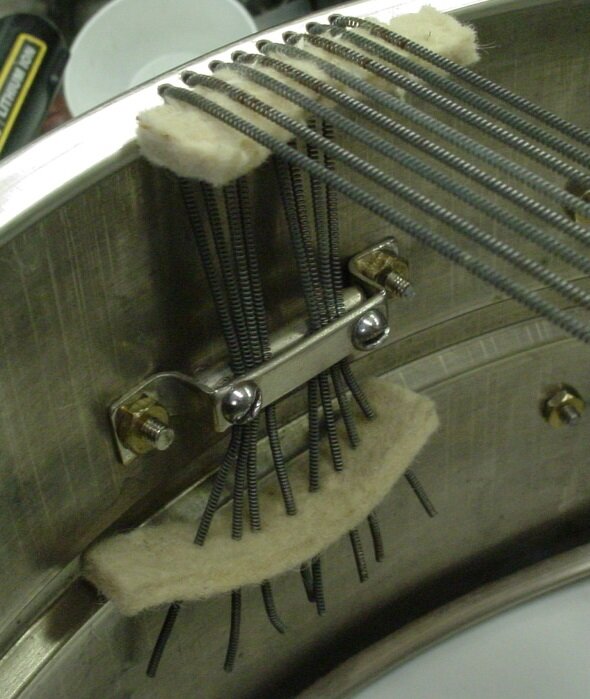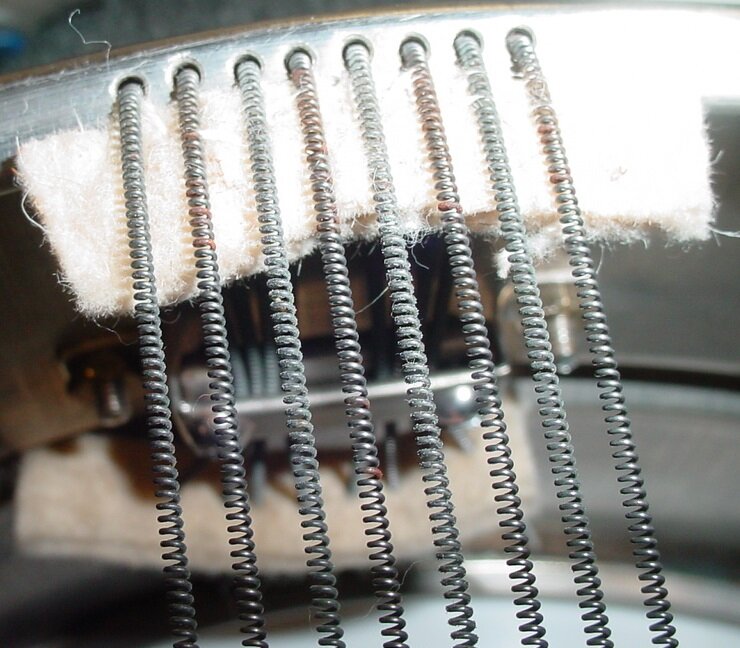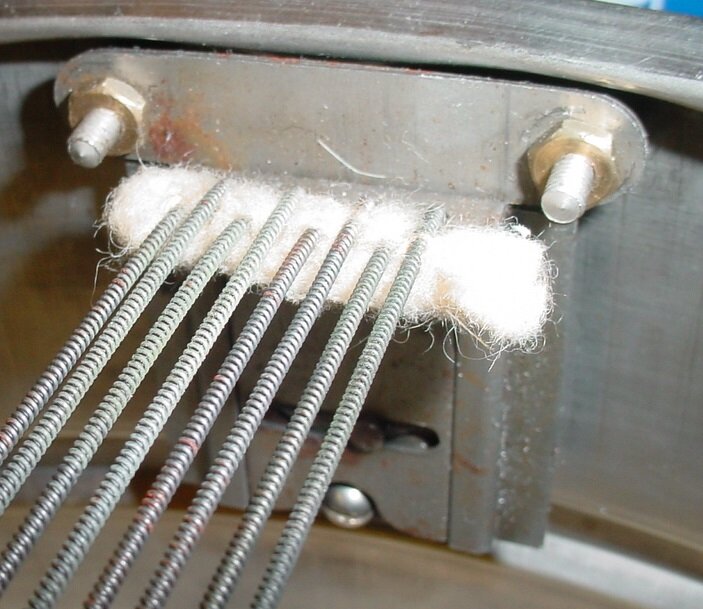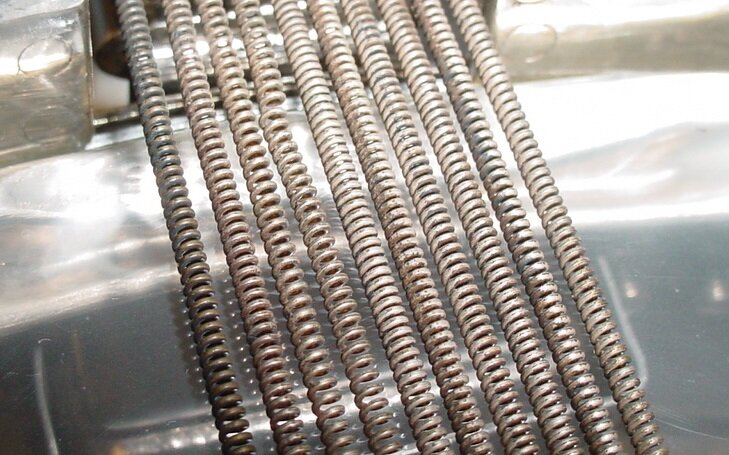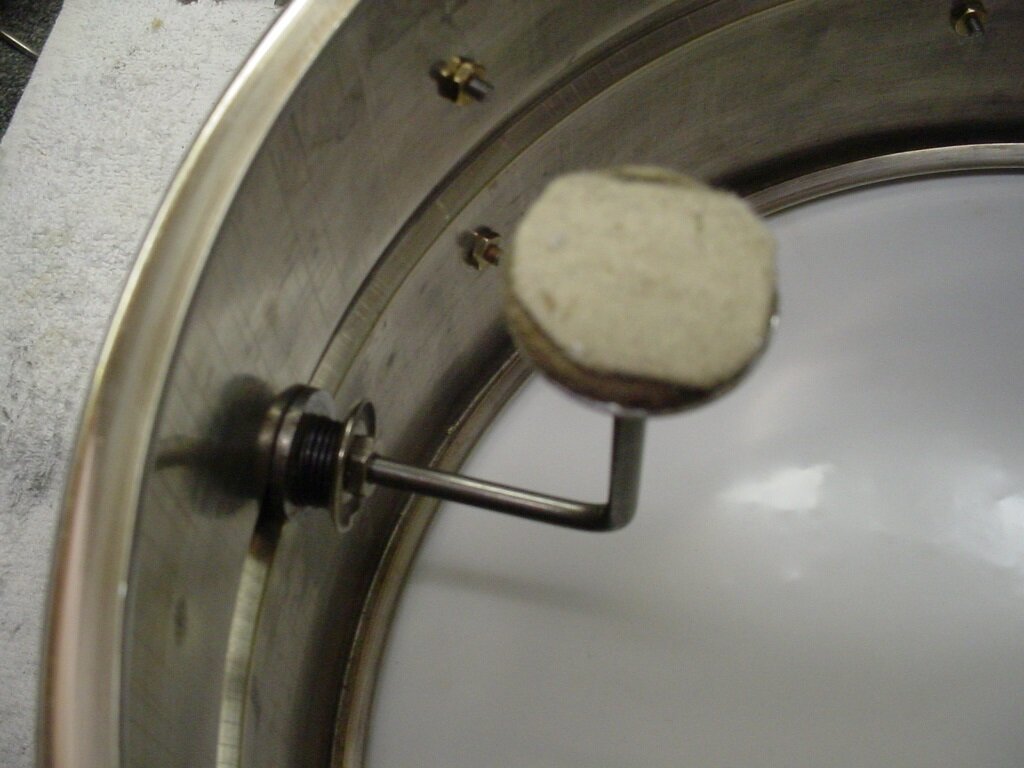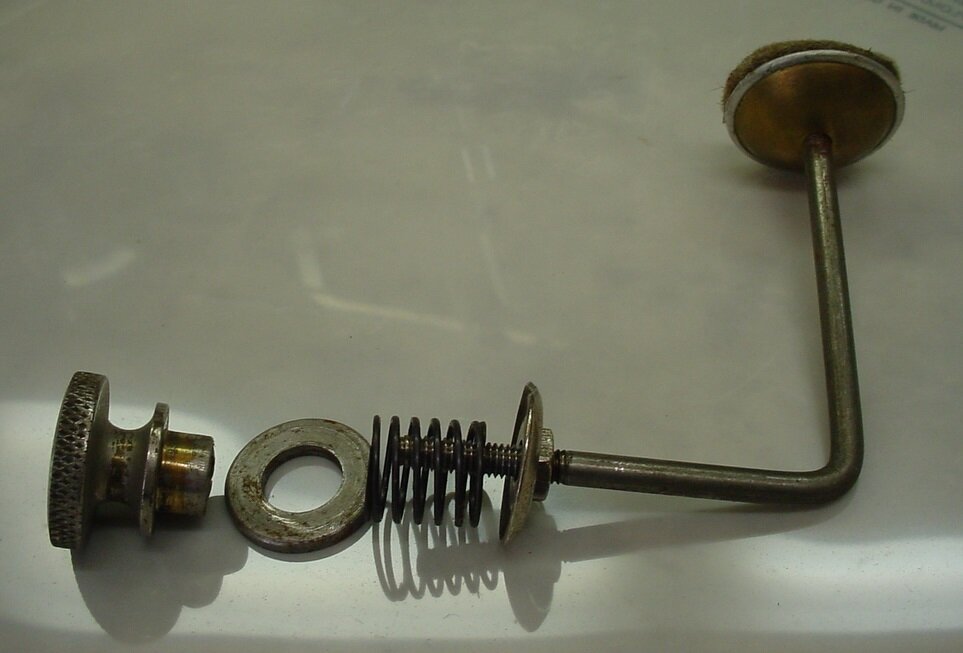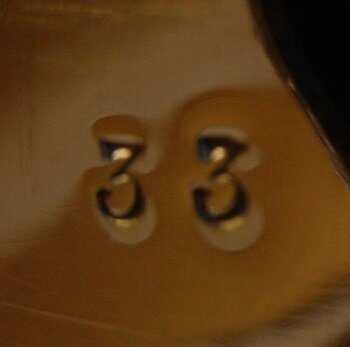Hi all,
I got this drum from a European seller who has sold me a drum or two before. I usually don’t collect European drums but this one was intriguing enough and somewhat historical so I went for it. A special thanks goes to my good friend, fellow collector and restorer extraordinaire Emmanuel of olDrums Vintage & Custom oldrums@sfr.fr for helping me to identify and date this drum. If you need help identifying or restoring vintage European drums Emmanuel is your man.
LATE 1950s *SEIMATONE/BEUSCHER (FRANCE) 6 x 14 NO NAME **SUPER-SENSITIVE (COPY) MODEL
*Seimatone was a subsidiary company to the Beuscher brand.
**This drum has many similarities to a mid-late 1930s Ludwig & Ludwig Super-Sensitive Model.
Emmanuel was kind enough to allow me to quote his very helpful information that he supplied regarding this drum:
“To answer to your questions:
. Originally this snare named ‘paramount’ model (Leedy copy lugs) but they changed to Imperial Ludwig lugs (without model name)...
. Unfortunately, yes it's very common to have no logo on French snare... More difficult to recognize them :(
. I always think late 50s but I've don't seen on my first answer than this snare was existing in 1968 catalog... I think late 50s because you have rounded wires protection... after 60, they have angular protection.
. I send you 4 catalog pics than I've based to constructed my answers:
Beuscher catalog 1946: you can see the "Paramount" snare model with Leedy lugs copy but same throw-off system and single flange hoops but same rounded wires protection.
Beuscher catalog mid-50s: same snare than 1946 but you can see an evolution: another little level (on the middle) to command the internal snare wire.
Beuscher catalog 1962: wood model but same throw-off system, single flange hoops and two evolutions with an angular wires protection and Imperial lugs copy.
Beuscher catalog 1968: this snare was always on the catalog (n°109) with Imperial lugs, angular protection and triple flange hoops but without level for internal snare wire.
You've observed that no pics have your double-level command [Super/Super-Sensitive mechanisms]... and I've never seen before this snare with same double-level, it's great ! Hope you learn new information to date it.
PS- your last twin WFL 39 is hallucinatory!!! Never seen this model before yours, wonderful!
A bientôt,
Emmanuel
olDrums Vintage & Custom
http://www.oldrums.fr/”
THE SHELL:
The shell is nob and is a direct copy (kind of) of a mid-late 1930 s Ludwig & Ludwig 5 x 14 single piece brass shell. The difference here is that this shell is 6 x 14. I also noticed that the bearing edges are very small like you would see on a 1920s-40s L & L Universal/Student model. The snare beds are very crude, it looks like someone took a hammer to the shell and went for it. There is no badge and the only factory marking on the shell is a stamped “33” that is near the bottom of the shell and opposite the upper snare mechanism lever.
THE HARDWARE:
The nob shell and all of the hardware needed a very thorough cleaning and polishing, everything came out good.
NB: I thought that it would be interesting to note similarities and differences as it makes for some historical significance...and interest.
A few similarities are the 8 notched “Imperial” lugs but these are tapped (none were stripped) just like the Imperial lugs in the L & L 1935-36 Anniversary era. The lugs are attached to the shell with threaded posts and brass nuts. There is the familiar “hex” bead in the shell, the top and bottom rims are double flanged (stick choppers) with slightly different snare gates on the bottom rim and the “trigger” Super and Sensitive levers are very similar to the mid-late 1930s L & L Super-Sensitive levers. Some differences are the metric, slotted tension rods, the Super and Sensitive mechanisms, top and bottom snares and metric attachment screws/nuts. It’s interesting to note that the bottom sections of the parallel mechanisms are very much Leedy-like whereas the “triggers” (top sections) are very Ludwig-like. Notice the very unique/strange way that the top mechanism snares are attached via holes into the top bearing edge with a Ludwig-like butt plate to secure the snares. There is a tone control as you would see on an L & L snare but the tone control placement on this drum leaves a lot to be desired as it’s placed right through the hex bead. It’s an interesting note that L & L discontinued their Super-Sensitive models sometime around 1939 but the Beuscher Co. offered this model into the late 1950s.
I left the of-the-era Premier heads on this drum.
Enjoy!
Mike Curotto

